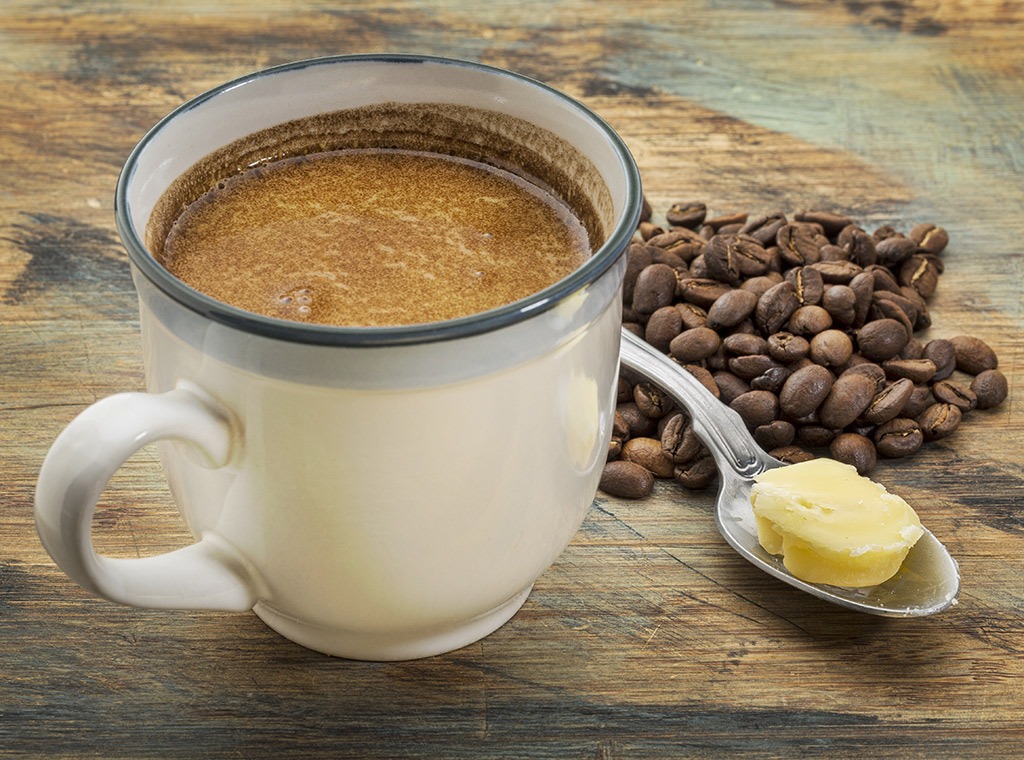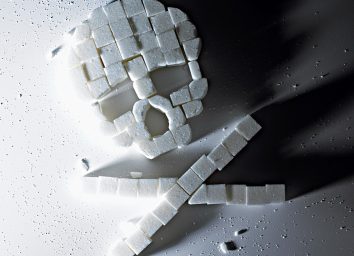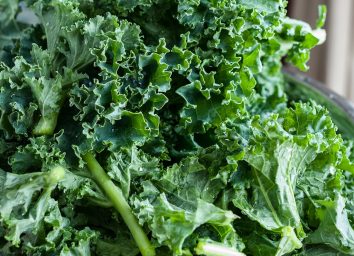Why People Are Blending Their Coffee with Butter

If you’re confused, we don’t blame you! The health community has been telling you for years that butter is bad, and now it’s suddenly the liquid gold slim and trim swear by for weight loss. Bulletproof coffee, also known as butter coffee, is having a serious (if controversial) moment in the sun, so we hit up two health experts for their take on the newest nutrition fad.
Butter in coffee is nothing new, Carolyn Brown, MS, RD at Foodtrainers in New York City explains, in fact, it has a rich history rooted in African and Tibetan cultures. The founder of the modern-day Bulletproof movement was inspired to create his own daily drink by the yak butter tea he was offered while on an adventure in Nepal. Yak butter tea is a tradition in Tibet where, in addition to boosting density and flavor in tea, butter also adds the calories necessary to keep warm in harsh climates. But you’re probably not hiking a prodigious mountain or living in an extreme climate, so what’s the sell for you?
Turns out, if you believe the anecdotal evidence, it’s a big one. The blended morning drink is said to keep hunger at bay, stave off cravings, stabilize blood sugar and even help your body burn that stubborn belly fat. That’s a lot of promise but—as one of the nutritionists we talked to about this movement warned—it’s also a lot of butter.
“Butter is, and will always be, a saturated fat which at this point has proven to be more of a con than a pro for overall health and weight management” according to Lisa Moskovitz, RD CDN. Bulletproof doesn’t go easy on the butter, either. The recipe requires 1-2 tablespoons grass-fed butter, 1-2 tablespoons MCT (medium chain triglyceride) oil and one cup of coffee, blended together until there’s foam on top, much like a cappuccino. But you better buy a better butter—or all bets are off. “Grass-fed butter is much higher in conjugated linoleic acid or CLAs than regular butter is,” Brown explains. “CLA helps reduce body fat and, specifically, abdominal fat.”
The blended morning drink is said to keep hunger at bay, stave off cravings, stabilize blood sugar and even help your body burn that stubborn belly fat.
Both Brown and Moskovitz agree on the core benefits of this blend’s other ingredients, though. “Regular coffee consumption (1 to 3 cups per day) is consistently associated with a lower risk of diabetes, Alzheimer’s Disease and Parkinson’s, as well as overall mortality,” Brown explains. Recent studies have linked moderate coffee consumption with a decreased risk of dementia and increase in strength and longevity of long-term memories in human subjects. MCTs boast a long list of health benefits, too, including a decrease in both overall body fat mass and abdominal fat in overweight people when used in tandem with a healthy diet and exercise plan. Moskovitz agrees, saying, “Research links MCTs to appetite suppression, energy boosting, increased fat-burning and immune enhancement. Because of their rapid rate of conversion into cellular energy, MCTs are good for fueling physical exertion.” And, she continues, when combining MCTs with coffee, the benefits could be increased. “The caffeine in coffee will likely help enhance all the effects that MCTs have been shown to provide.”
If this is already starting to sound too good to be true, you might be on to something. “While fat in general does help satisfy appetite since it has a structure that’s more difficult to break down in the stomach, it is still not a trend I would recommend for anyone to help them reach their weight loss goals,” warns Moskovitz. “The effects, if any, will likely be small to negligible—not enough to make it worth trying.” After all, even Brown—who isn’t as convinced Bulletproof is bad for you—warns this coffee is 400 plus calories per cup.
Don’t think this heavy dose of calories so early in the morning is for you? The MCTs aren’t entirely necessary to get those positive effects, suggests Moskovitz. “People can get many of the same energy-boosting, appetite-suppressing and fat-burning benefits from just coffee alone, instead of adding MCTs. This approach is better, especially for those with sensitive stomachs; MCTS, if eaten in larger quantities, might upset your stomach causing nausea and gastritis.” And that’s more than enough of a reason (in our book) to politely demure on this tea-inspired trend.








